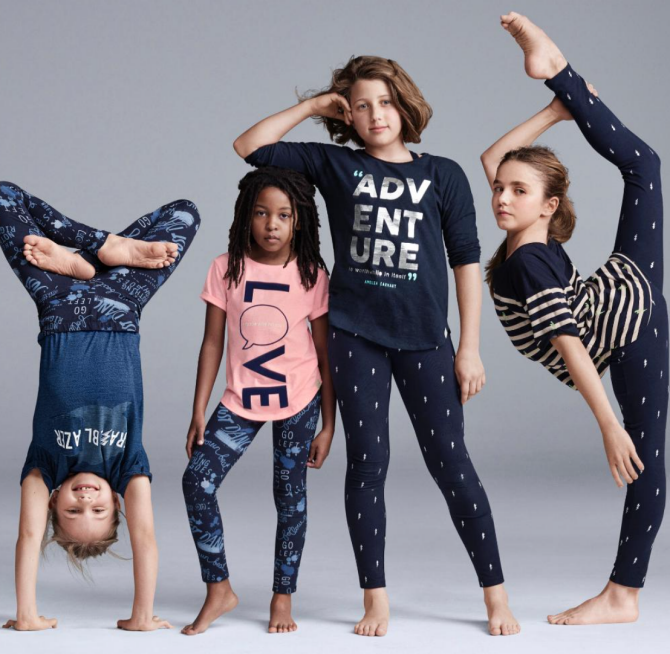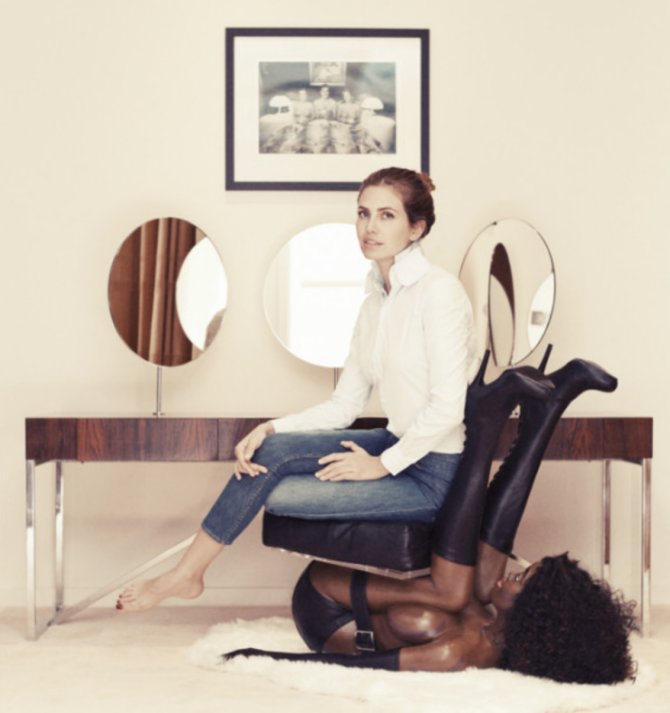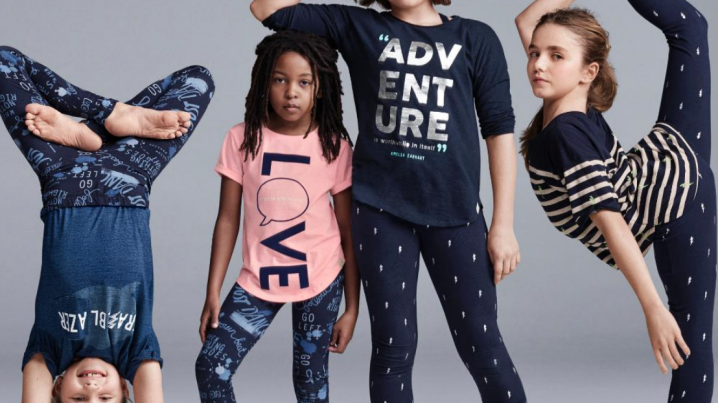[ad_1]

An ad for GapKids with the tagline: “Girls Can Do Anything”
GapKids Ad/Twitter
There is a moment in Underground, WPN’s exceptional new series chronicling the escape of seven enslaved black people from a plantation in Macon, Ga., where the white mistress—envious of the gratitude her daughter has shown to the head house servant, a black woman who has given birth to several of the master’s children—sends the enslaved black woman’s daughter to confront an angry white man, leading to a vicious lashing.
It was heart-wrenching to watch for several reasons, the obvious one being the horrifying visual of the young black woman’s skin breaking and bleeding with each lash.
But it was the scene in its entirety that, perhaps, troubled me the most. The degrading pain being inflicted upon the young black woman while everyone looked on, unwilling to interfere, serves as a prescient illustration of how black women and girls in a white supremacist society continue to be both invisibilized, endangered and exploited for the benefit of white women and capitalism, more specifically King Cotton.
It was with these thoughts in mind that I saw the Ellen DeGeneres fronted GapKids ad featuring four young girls, three white and one black, socialized with the tweet: “Meet the kids who are proving that girls can do anything”—preferably in Gap cotton.
While all of the girls are adorable and, indeed, all of them should grow up to be and do anything, it becomes problematic when the black child is positioned to be a white child’s prop. And this isn’t the first time a similarly dehumanizing editorial choice was made. In 2014, online magazine Buro 247 published a story about Dasha Zhukova, the editor-in-chief of Garage magazine. Their feature image was of Zhukova sitting regally in a mannequin chair in the form of a half-naked black woman.

Dasha Zhukova, the editor-in-chief of Garage magazine
BURO 247
BURO 247
Of course, it could be argued that these images are vastly different, but the intense feelings they both evoke are not—the feeling that our black bodies are undervalued and positioned to serve as props upon which white bodies can be better appreciated and admired. If anything, the Gap ad shows how early that positioning begins.
@GapKids This is an #epicfail on so many levels. You should be embarrassed. #misogynoir
— ImDG (@IamDeborahG) April 3, 2016
@GapKids Thanks for perfectly illustrating what ‘passive racism’ looks like in mainstream media. #DiversiryFail She is NOT your arm rest. 😑
— Jasmine Wow (@Jmo120) April 3, 2016
@GapKids What is the message for Black girls? Are they meant to be seen as subordinate? Shame on you, Gap! pic.twitter.com/7U41B8lFI5
— nightshade (@VeganWhileBlack) April 3, 2016
@GapKids who thought it was okay to present the ONE black girl as static / armrest FIRE THEM
— tesseract (@A10110110) April 2, 2016
That ad certainly isn’t suggesting that *black* girls “can do anything,” @GapKids. It’s incredibly distasteful to your black consumer base.
— stacia l. brown (@slb79) April 3, 2016
The media can & should play a role in letting @GapKids know this ad is disgusting by covering outraged consumers. pic.twitter.com/wwvCJEdtSS
— Rachael Perrotta (@plussone) April 2, 2016
Who the fuck approved this for an ad? Fuck y’all and this white feminist shit. https://t.co/HWmpdyx3lx
— Bae Guevara (@Thug_Scholar) April 3, 2016
These reactions are valid and come from a deep place of understanding that this “passive racism” masquerading as cosmetic diversity is often used as a tactic to manipulate black women and girls into silence despite the oppressive conditions that we still face.
We are living in a time where black consumerism is vastly outpacing black wealth, and our dollars, like our votes, are still be taken for granted.
We are also living in a time where pop artists from Taylor Swift to Miley Cyrus to Katy Perry are using black women and girls to serve as props, their perceived lesser humanity used to distract from the mediocre white women seeking validation from the very black communities that birthed them.
And while we are fighting against these things, we are also fighting for our lives, addressing how black girls are criminalized and pushed out of schools, overpoliced on the streets and underprotected in their homes and communities.
So, yes, seeing a black girl child irresponsibly used as a prop in an ad claiming that girls “can do anything” matters. It’s not about seeking validation from the white gaze or ignoring the critical need for us buy black. It matters that black women and girls are still being subjected to the lashes of microaggressions and, at times, outright violence, in the service of capitalism.
It matters that this kind of obliviousness to historical context and intergenerational trauma is being etched onto the bodies of black children, who will become black adults forced to navigate a society that willfullly confuses cultural visibility with institutional and systemic equity. And still we are told, as that beautiful brown girl’s shirt says, to “love” through it all.
Contrary to popular opinion, popular culture, and politics, black women and girls are neither armrests, backdrops nor firewalls, despite white supremacy literally placing its burdensome weight on our heads.
This child deserved so much better, so do better, GAP—or not. It’s your business to lose.
[ad_2]





















